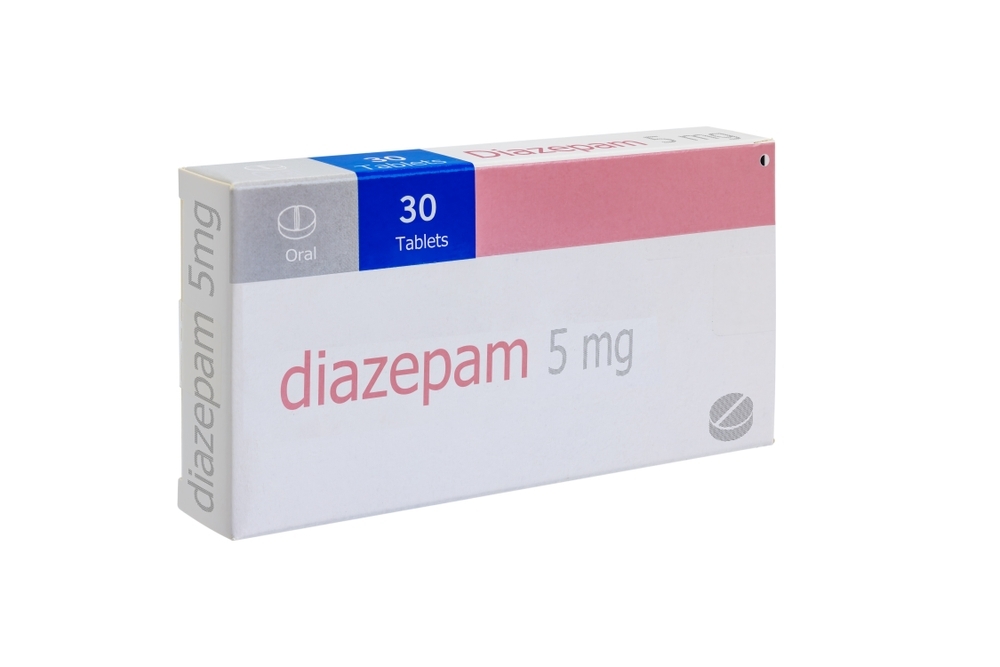
Last Updated:
May 28th, 2025
Diazepam (sometimes known as Valium) is a type of drug used to treat anxiety disorders. It is part of a class of substances called benzodiazepines. Benzodiazepines are prescription medications, meaning that they are controlled. However, people can access diazepam unofficially. When obtained through this route, these drugs are known as ‘street benzos.’ Both prescription diazepam and street benzos carry the risk of dependency. This is because they are strong drugs with some addiction potential. This is why there are strict rules on when diazepam can be prescribed, and it is often given for limited periods of time.
Data suggests, though, that many people take more diazepam than the guidelines suggest. This can account for initial issues with benzodiazepines. But why are these types of drugs so dangerous? What specific risks do they carry, and what are the potential consequences? What types of treatment are available for diazepam addiction?
Diazepam addiction
Diazepam is often prescribed for people struggling with intense anxiety. You might be prescribed it under several different names, such as:
- Diazemuls
- Stesolid rectal tubes
- Diazepam retubes
- Diazepam desitin
- Valium
If you are using street benzos, then they are likely to be referred to with street names, including:
- Alprazolam
- Bars
- Benzos
- Blues
- Downers
- Etizolam
- Pohypnol
- Roofies
- Vallies
- Xanax
What does diazepam do?
Prescription diazepam is used to help people tackle anxiety symptoms. Diazepam can ease these experiences as it is a depressant drug. It inhibits some of the actions in the nervous system. This means that it effectively works to slow down the body and brain for a period. This can alleviate racing thoughts and stimulate a sense of calm.
Usually, GPs or psychiatrists will only prescribe diazepam for short periods of time. These prescriptions will likely be monitored and require frequent check-ups to assess for any signs of dependency forming. There is a concern that individuals with anxiety issues may grow both mentally and physically dependent on diazepam over time. [4]
Street benzos are also used for their depressant effects. But in these cases, they are often used in conjunction with other drugs. They are often taken for their ‘chill’ feel. A Benzo high can lead you to feel:
- Calm
- ‘Spaced out’
- Sleepy
Whilst a lot of people using street benzos are seeking these specific sensations, they can also cause unpleasant feelings, like:
- Aggression
- Dizziness
- Loss of consciousness
- Confusion
- Slow reactions
There are growing concerns that street benzos are becoming associated with violent crime. For example, they have been linked with nonconsensual acts such as spiking and sexual assault.
How common is it?
It is not always easy to get a clear picture of how common an addiction is. This is because the data available only shows the numbers that have been reported. Between 2022 and 2023, 3,620 people in England were in treatment for benzodiazepine addiction. But this only shows us how many people are actively accessing support – we know that there are typically many people struggling who are not in treatment. From this, we can extrapolate that the pool of people experiencing issues with diazepam is higher.
In 2020, there were 34 fatal drug poisonings in England and Wales linked with diazepam use. A 2022 article published by The British Medical Journal indicates that doctors have been ‘warned’ of the increasing threat of “street benzos” in recent years.’
The World Health Organisation explains how prescription diazepam carries a ‘risk of dependency’ and suggests that it ‘shouldn’t be commonly prescribed for anxiety or distress,’ due to this risk.
Why does it happen?
Essentially, drugs like diazepam have a high addiction potential. As a sedative, they change the way that our central nervous system functions for a short period after use. Over time, we can begin to rely on the changes that these drugs make and can struggle to function without them. This makes it very difficult – and often not very desirable—to stop.
Withdrawals
It is possible for people to experience withdrawals when they stop taking diazepam. Whilst these withdrawals can be uncomfortable, they are not considered to be ‘life threatening or incapacitating.’ These symptoms often lead to cravings and also reduce an individual’s drive to cease use.
Mixing
Street benzos are likely to be cut with other drugs – that means that it is virtually impossible to identify what these substances contain. They can be mixed with other potent, addictive drugs or even with lethal compounds and chemicals. This means that by taking street benzos, you may unwittingly become dependent on several substances at once.

Signs of diazepam addiction
As with all drugs, there is a line between frequent use of diazepam and addiction. Addiction to diazepam can manifest as:
- Shaking
- Headaches
- Low blood pressure
- Nausea
- Dizziness
- Change in vision
- Change in speech
- Intense lethargy
- Dramatic peaks and troughs in mood
- Paranoia
- Memory loss
- Increased use of diazepam
- Unpredictable behaviour
- Risk taking
- Social withdrawal
What are the risks?
Overdose
Potentially, the biggest risk of diazepam addiction is toxicity. It is possible to overdose on benzodiazepines (both the prescription and street kind).
Benzos are often taken with alcohol or after using ‘party’ stimulants like cocaine and ecstasy. This can create a dangerous cocktail of substances. Mixing benzodiazepines like diazepam with alcohol carries risk as both drugs are depressants. This means that there is a chance of experiencing strong sedative effects such as loss of consciousness or difficulty breathing.
Diazepam poisoning can lead to serious health complications like respiratory depression or coma. This can, in some cases, lead to death. In others, these experiences can lead to lifelong symptoms such as brain damage or a decline in heart health.
Deteriorating mental health
Long-term use of diazepam can lead to further psychological difficulties. This can be especially challenging for individuals with preexisting psychiatric conditions such as anxiety and depression. Diazepam can sometimes lead to paranoid thoughts that can feed anxiety and mood disorders. This can feed into a very negative psychological state that could veer towards suicidal ideation.
Help for prescription drug addiction
Struggling with prescription drugs is nothing to be ashamed about. Medications can impact us all in different ways – the most important thing to do in these cases is to be honest about your experiences and seek help when appropriate.
This could look like:
- Requesting a medication review with your GP or psychiatrist
- Speaking with an addiction specialist
- Seeking help form a support group
- Integrating therapy into your treatment to mitigate the need for medication
- Maintaining a strong support network
- Calling mental health helplines if required
- Contacting 999 in an emergency
Being open about your experiences with prescription medications is the best way to safeguard your long-term health. Medical professionals are there to help you, and that includes helping you address issues with dependency.
Start your route to addiction recovery
If you are concerned that your diazepam use is spiralling out of control, then it may be time to access support. From outpatient programmes to supported detoxes and residential care, rehab for drug addiction comes in all forms. At UKAT, there is an appropriate route to recovery for everyone. Contact us today to seek judgment-free, specialist advice from a member of our admissions team.
(Click here to see works cited)
- https://www.nhs.uk/medicines/diazepam/
- https://www.talktofrank.com/drug/benzodiazepines
- https://bnf.nice.org.uk/drugs/diazepam/
- https://bnf.nice.org.uk/drugs/diazepam/
- https://www.gov.uk/government/statistics/substance-misuse-treatment-for-adults-statistics-2022-to-2023/adult-substance-misuse-treatment-statistics-2022-to-2023-report
- https://www.statista.com/statistics/470852/drug-poisoning-deaths-diazepam-in-england-and-wales/
- https://www.bmj.com/content/370/bmj.m2995.full
- https://www.benzoinfo.com/2023/12/01/who-2023/
- https://pmc.ncbi.nlm.nih.gov/articles/PMC4553644/
- https://pubmed.ncbi.nlm.nih.gov/6348314/
- https://www.talktofrank.com/drug/benzodiazepines#the-risks
- https://jcsm.aasm.org/doi/10.5664/jcsm.9096

